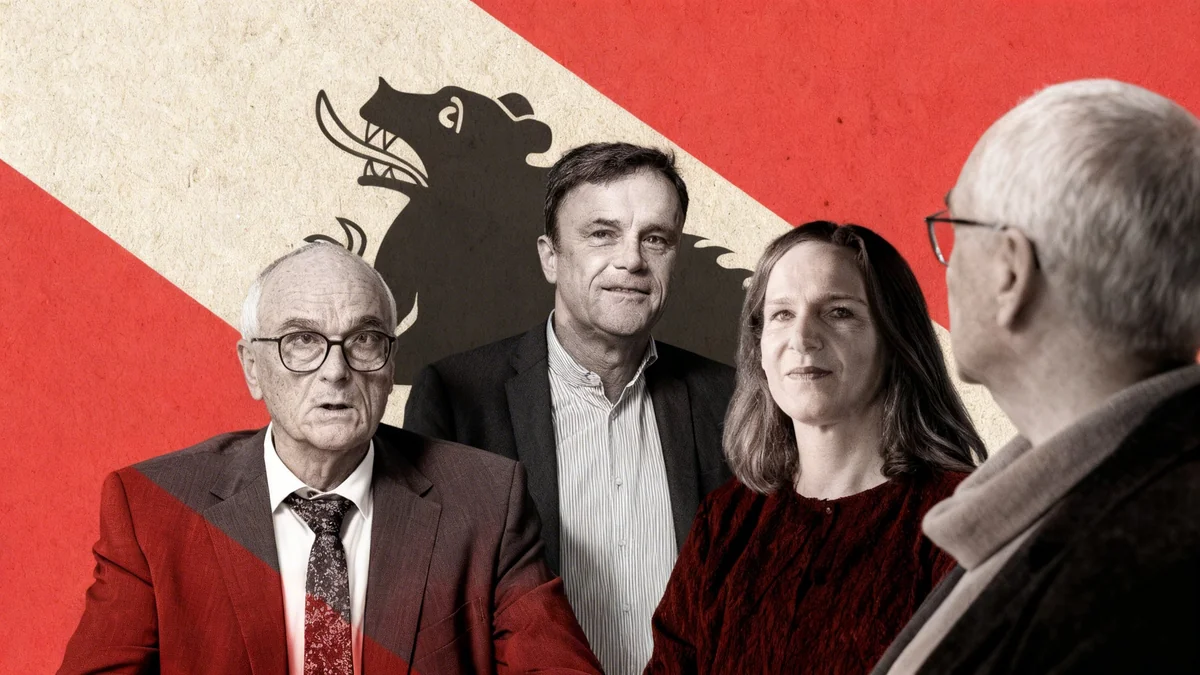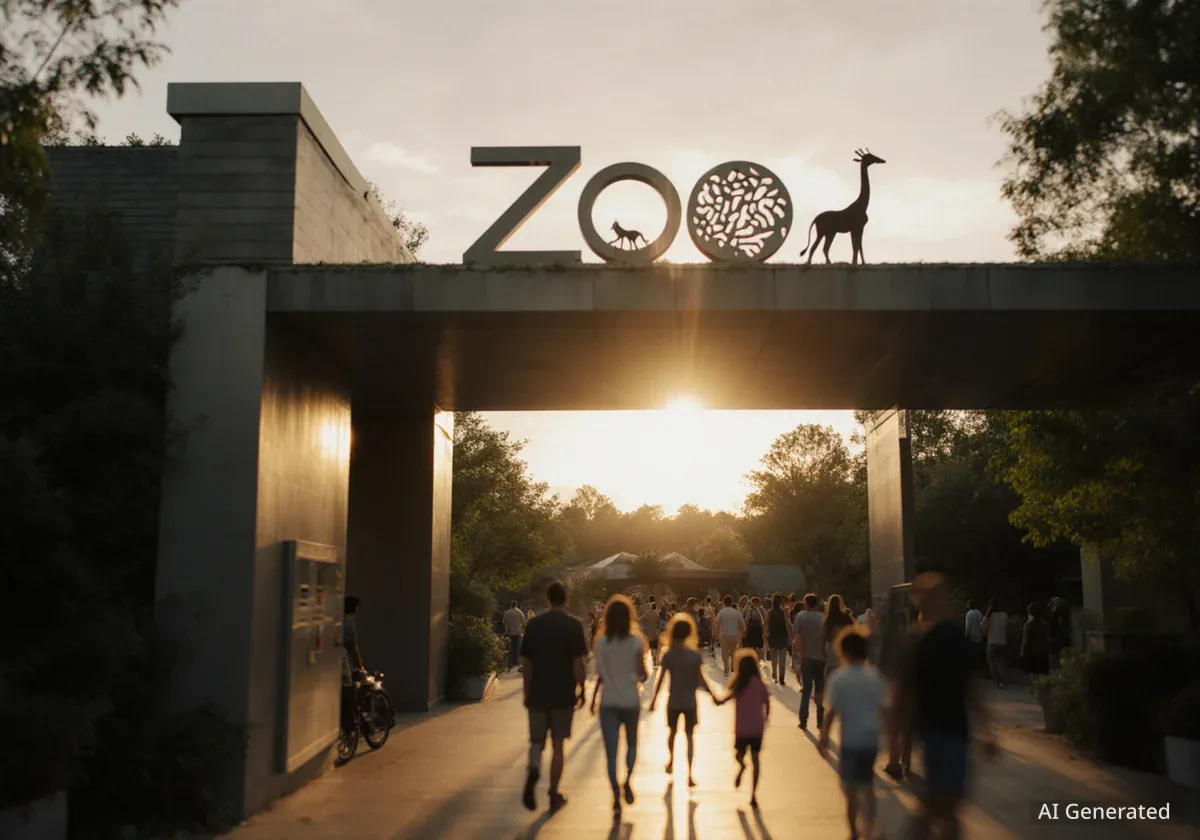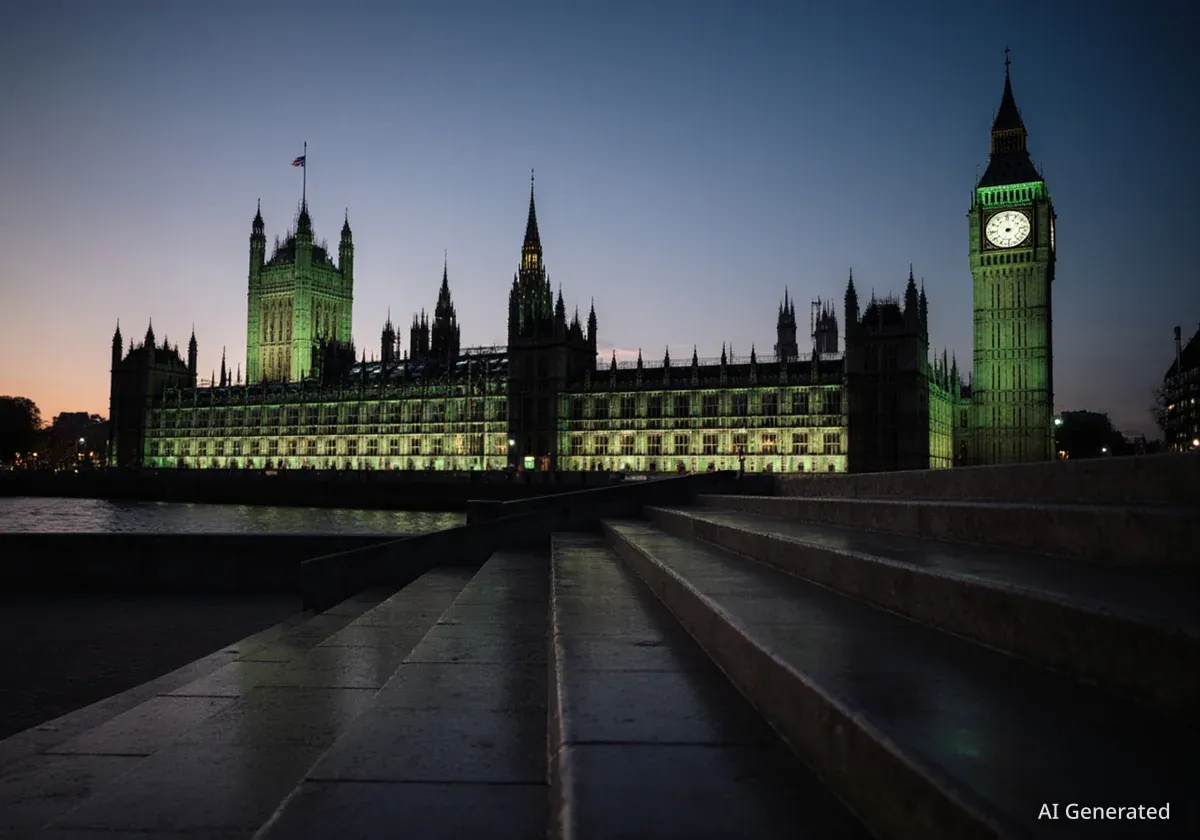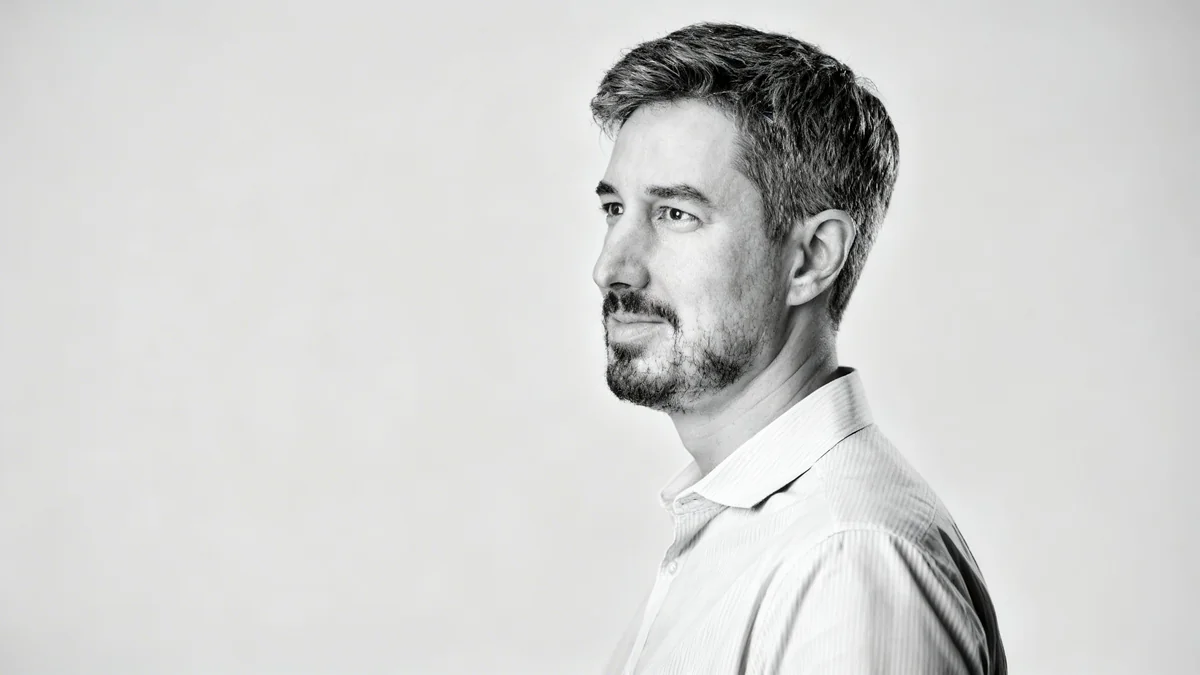The FDP (Liberal-Radical Party) held its delegates' assembly at Bern's Wankdorf Stadium on Saturday, addressing the party's stance on new agreements with the European Union. The critical meeting followed months of intense internal debate, culminating in a significant decision for Switzerland's future relationship with the EU. The party remains deeply divided on the issue.
Key Takeaways
- FDP delegates debated Switzerland's future relationship with the EU.
- Former Federal Councillors publicly disagreed on the EU agreements.
- A working group failed to reach a consensus, presenting two proposals.
- Foreign Minister Ignazio Cassis advocated for the new agreements.
- A key point of contention is whether a 'Yes' vote requires a popular majority and a majority of cantons.
Intense Internal Divisions and Public Disagreements
The FDP's assembly was marked by significant internal tension. Days before the event, public disagreements emerged among party members, including former Federal Councillors. This highlighted the deep divisions within the party regarding the proposed EU agreements.
Former Federal Councillor Johann Schneider-Ammann, aged 73, published a guest commentary in the NZZ newspaper. In his article, he argued against the new EU treaties. His stance drew a sharp response from FDP National Councillor and entrepreneur Simon Michel.
Simon Michel, 48, a strong supporter of the EU agreements, commented on LinkedIn. He questioned Schneider-Ammann's article. Michel later apologized for his remarks at the assembly.
"The debate became heated," said FDP National Councillor Simon Michel on stage. "That went too far. It was disrespectful. I hope Johann Schneider-Ammann will accept my apology."
Michel's apology came after his earlier social media post. He stated: "Anyone who knows Johann Schneider-Ammann knows that he a) does not think that way and b) can no longer write like that for health reasons." Schneider-Ammann was reportedly not present at the assembly.
Fact: FDP Delegation Size
Approximately 500 individuals registered for the FDP delegates' assembly, indicating significant interest in the EU debate.
The "Monster Debate" and Divergent Proposals
The assembly featured an extensive debate, with over 100 individuals registered to speak. This led to expectations of a "monster debate." To prevent a party split, a special working group was established months ago. This group comprised twelve members tasked with developing a unified position on the EU agreements.
The working group included six EU skeptics and six EU proponents. Despite their efforts, they failed to reach a consensus. Instead of a single paper, two separate proposals were submitted for the delegates to consider. This outcome underscored the persistent divisions within the party.
The debate began with presentations from the EU proponents. FDP parliamentary group leader Damien Cottier emphasized that there is no status quo, contrary to some claims. He listed the demands the party had made for the new treaties.
"Yes, dear friends, the FDP has succeeded with all its demands," Cottier stated. "Now we must be consistent. Let us say yes to the further development of the bilateral path."
Context: The Bilateral Path
Switzerland's "bilateral path" refers to a series of treaties and agreements with the European Union. These agreements aim to regulate various aspects of the relationship, allowing Switzerland access to the EU single market while remaining outside the EU. Proponents argue new agreements are vital to maintain this path.
Arguments for and Against the Agreements
Simon Michel, a prominent EU supporter within the FDP, argued for the necessity of the agreements. He compared the situation to neighborhood rules.
"In every neighborhood, there are rules," Michel explained. "It is precisely about such rules. We need legal certainty here; the existing rules are outdated. For me, it is clear: A continuation of the bilateral path is not an option. It is a necessity. It is Switzerland's royal road."
Following the proponents, the EU skeptics presented their arguments. FDP City Councillor Filippo Leutenegger led this group. He challenged the idea of aligning with the EU legal system.
"We do not believe that linking to the EU legal system is the right thing," Leutenegger said. He disagreed with Michel, stating, "The EU is not our neighbor. Our neighbor is Germany, our neighbor is Lombardy, our neighbor is not Brussels."
FDP National Councillor Christian Wasserfallen delivered a strong speech. He raised concerns about national sovereignty. "We are giving up sovereignty. We are allowing ourselves to be influenced and impressed by direct-democratic decisions."
Foreign Minister Cassis's Plea and Warnings
Foreign Minister Ignazio Cassis addressed the delegates early in the assembly. For Cassis, these EU agreements represent a crucial part of his legacy. He has actively campaigned for their acceptance in recent months.
Cassis spoke in German first, a deliberate choice aimed at persuading the German-speaking delegates. This group is generally more skeptical of the EU agreements than their counterparts from French-speaking Switzerland.
Cassis warned about the consequences of inaction. "Without new steps, the bilateral path will expire in the medium term," he stated. He pointed to the experiences of sectors like Medtech and higher education since the Federal Council ended the framework agreement in 2021. He highlighted the negative impacts felt in these areas.
"They support our prosperity," Cassis said regarding the agreements. He emphasized that new agreements would bring important benefits and address two institutional issues: dynamic legal adoption and dispute settlement. These two points are particularly contentious within the FDP.
Cassis clarified that while legal adoption would be dynamic, it would not be automatic. He concluded his speech with strong words, stating, "Today I am here to account." He listed promises he had made regarding the treaties, asserting that each had been "fulfilled."
"The present result is the continuation of the bilateral path. This is the liberal path between accession and going it alone," Cassis declared. He assured delegates that the new treaties would not restrict Swiss sovereignty. His message was clear: the delegates should vote yes.
- Dynamic Legal Adoption: This refers to the process where Switzerland would adapt its laws to match developments in EU law in certain areas.
- Dispute Settlement: This outlines the mechanism for resolving disagreements between Switzerland and the EU regarding the interpretation or application of agreements.
A Potential Setback for Cassis? The Ständemehr Question
While many FDP parliamentarians anticipate a 'yes' vote from the delegates for the agreements, another question adds complexity: whether a 'yes' vote would also require a majority of cantons (Ständemehr) in a national referendum. This issue appears to have narrower majorities within the party.
Some view a 'yes' with the Ständemehr requirement as a compromise. This approach could bring skeptical party members on board. The incoming leadership duo, Susanne Vincenz-Stauffacher and Benjamin Mühlemann, who assumed office on Saturday, have expressed openness to this solution. They succeeded the outgoing FDP President Thierry Burkart.
However, adding the Ständemehr condition could complicate matters for Foreign Minister Cassis. The Ständemehr requirement has historically been a hurdle for EU-related agreements in Switzerland, notably contributing to the failure of the EEA accession. If the treaties were to fail at the ballot box due to this requirement, the blame could fall on Cassis's own party. This compromise at the delegates' assembly might inadvertently benefit the SVP (Swiss People's Party) in a potential referendum campaign.
Key Figures in the Debate
- Ignazio Cassis: Foreign Minister, leading proponent of the EU agreements.
- Johann Schneider-Ammann: Former Federal Councillor, argued against the agreements.
- Simon Michel: FDP National Councillor, strong supporter of the agreements, publicly apologized for remarks.
- Filippo Leutenegger: FDP City Councillor, leader of the EU skeptics.
- Christian Wasserfallen: FDP National Councillor, raised concerns about sovereignty.
Absence of Federal Councillor Karin Keller-Sutter
Federal Councillor Karin Keller-Sutter was unable to attend the assembly. She was absent due to a family bereavement. FDP National Councillor Damian Müller conveyed her greetings and the party's condolences. "She sends her warmest regards," Müller said. "On behalf of the FDP family, we extend our heartfelt condolences to her." Keller-Sutter was attending the funeral of her recently deceased brother, Walter "Jesy" Sutter.
The FDP delegates' assembly concluded with the election of the new party presidency. The entire event was expected to last until approximately 6 PM, reflecting the complexity and importance of the decisions made.




